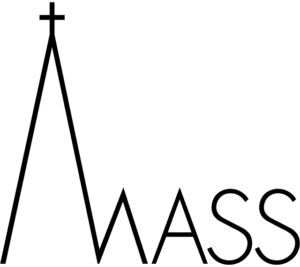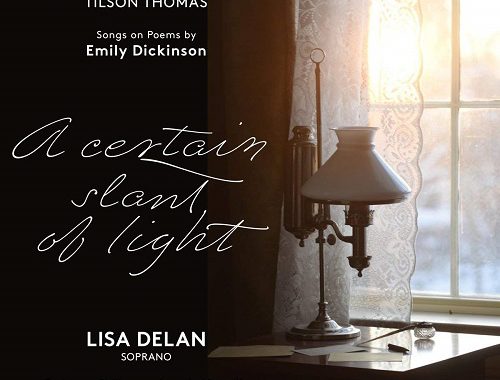GRAMOPHONE COLLECTION: Bernstein’s Mass
 It was back in 1989 during my one and only audience with Leonard Bernstein that I experienced what I believe would now be referred to as ‘a moment’. We were discussing ‘the song about the writing of a song’ (Lenny’s words) from the ‘Sanctus’ of Mass – a theatre piece for singers, players and dancers. Consider that passage. The Celebrant plucks idly at his guitar, a single note: ‘Mi. Mi alone is only mi…but mi with sol…me with soul’… Suddenly there’s a second note and that means a melody and with it ‘a song’ is beginning, ‘is beginning to grow, take wing, and rise up singing from me and my soul’. And as Bernstein spoke the words he instinctively began to sing them in that unmistakably gravelly voice of his – and in that moment I saw, like a startling action replay, the way in which that melody had first evolved. In the singing of it.
It was back in 1989 during my one and only audience with Leonard Bernstein that I experienced what I believe would now be referred to as ‘a moment’. We were discussing ‘the song about the writing of a song’ (Lenny’s words) from the ‘Sanctus’ of Mass – a theatre piece for singers, players and dancers. Consider that passage. The Celebrant plucks idly at his guitar, a single note: ‘Mi. Mi alone is only mi…but mi with sol…me with soul’… Suddenly there’s a second note and that means a melody and with it ‘a song’ is beginning, ‘is beginning to grow, take wing, and rise up singing from me and my soul’. And as Bernstein spoke the words he instinctively began to sing them in that unmistakably gravelly voice of his – and in that moment I saw, like a startling action replay, the way in which that melody had first evolved. In the singing of it.
So fazed was I by this spontaneous private performance that I rather boldly announced to the great man (as only a fledgling journalist could) that I believed that Mass would come to be seen as his most important piece. There, I had said it. And now, 30 years on, I can say it again and more than ever believe it to be true. No other work of Bernstein’s encapsulates exactly who he was as a man and a musician; no other work exercises his genius, his intellect, his theatricality, his musical virtuosity quite like Mass.
It was written in response to a suggestion by Jackie Kennedy that Bernstein write the inaugural
centrepiece for the opening of the John F Kennedy Centre for the Performing Arts in Washington D.C. in 1971. The work, it was suggested, should take account of the different disciplines that would be showcased in the venue. Ambition and Celebration were the watchwords. And so Mass was born in the larger-than-life image of Bernstein himself. At its core – and this was beyond audacious at the time – was the sacred text of the Roman Catholic Mass. But it was a text under scrutiny. Under duress. In collaboration with the then only 23-year-old Stephen Schwartz (composer of Broadway shows from Godspell to Wicked) Bernstein’s theatrical objective was to challenge those texts from the perspective of the world as it then was. Or rather the America as it then was: a nation caught up in an unpopular war; a nation ravaged by political and racial conflict – the war at home – a nation in protest.
Mass is in so many ways the ultimate protest piece. But equally it’s a piece about Bernstein’s own crisis of faith. It’s about intellectual rigour versus religious dogma. It’s about enlightenment versus blind acceptance. The Celebrant of Bernstein’s Mass is rejected by his own kind for peddling unconditional devotion. His spectacular breakdown at the climax of the piece comes at precisely the moment when he can no longer hide behind the paraphernalia of the church. He smashes the sacraments, discards the vestments. He’s one of us again. A regular guy with a guitar. Time to regroup, time to heal.
All human kind inhabits Mass – and all manner of music. A bewildering array of styles in scintillating juxtaposition. Music, says Mass, is Bernstein’s one true religion. Its diversity and fervour can move mountains, it can transcend political, social, religious barriers, heal divisions. Or to quote the man himself: ‘Music universally shared is the one sure way to the divine.’ There you have it. A religious experience – but note the small ‘r’. So pace the naysayers. The mad jubilant eclecticism of Mass – where atonal meets folksy meets soul meets gospel meets rock meets Broadway – is as much a celebration of Bernstein’s craft as it is his creed.
And as some indication of the work’s enduring power and growing popularity there are now SIX recordings of it. That fact alone would have thrilled Bernstein. And it would certainly have bemused him to see his most rebellious child featured as part of the Vatican 2000 celebrations in Rome. I was there. No dancing, no props, mind, those were the conditions laid down for the presentation. So when the Celebrant angrily flung down the sacraments at the work’s mind-bending climax the scarlet seam of cardinals seated impassively (and somewhat incongruously) in the front row of the audience/congregation cannot possibly have known what was going on. Just as well, perhaps…
Bernstein must have been there in spirit cheering on his ‘turbulent priest’. His inaugural recording based on the 1971 world premiere has its own special aura and
excitement. It’s engineered to within an inch of its life for optimum immediacy. It isn’t state-of-the-art but it’s certainly ‘in your face’. And more than anything it’s the gospel according to Lenny – he alone knows how every bar, every style, every allusion should go. He relishes the gamesmanship and is as ‘knowing’ playing with twelve tones as he is being self-indulgently cheesy. It feels spontaneous and it feels authentic.
At the heart of Mass – more so than the mass itself – are the responses, the Tropes. These are the soul of the piece, songful reflections (among the finest Bernstein ever penned) from a group of sharply defined individuals dubbed the ‘Street Singers’. Just so. They are all of us. And they, like the Celebrant himself, demand a special breed of musical theatre performers with the composer’s nose for style. Bernstein’s motley crew are just about as good as they get – because they’ve learned the piece with him, through him.
Likewise the wonderful Alan Titus whose Celebrant marries a honeyed baritone with gorgeous head-voice enticements to a sexy demeanour and an actor’s feeling for text. Vocally the piece sounds bespoke for him and his meltdown (Bernstein’s oblique homage to Peter Grimes?) is as full-on and as moving than any I have experienced.
The most stupendous passage in the entire piece precipitates this final ‘scene’ and is built from a funkily
insistent ten-bar refrain of ‘Dona nobis pacem’ on which Bernstein does a Shostakovich ‘Leningrad’, building and building it, layer upon layer, decibel upon decibel, as the plea for peace turns into a demand. But there is no peace. End of. You’d expect Bernstein to go for broke in this passage, and he does. It’s a wailing wall of a climax, electric guitars and the entire instrumental ensemble instructed to top ‘anything from the entire musical literature’.
But we need to come down to earth – less with a bang, more with a whimper. Kent Nagano’s 2003 recording on Harmonia Mundi with the late Jerry Hadley as the Celebrant can be swiftly set aside. You would not think it possible to strip a piece this audacious of its personality – but that’s precisely what Nagano does. At best it feels dutiful, at worst prosaic. No joy, no abandon. It never feels emotionally connected – and poor Jerry Hadley, uncharacteristically mannered and clearly not what he once was vocally, overworks the parody of that final scene in such a way as to distance us from it completely. Philip Clark called it when he wrote in these pages: ‘When Kent Nagano brought down the tablets of stone in 2003, frankly, he dropped some.’ Boom, boom.
Of the most recent recordings (both from 2018) one from the American conductor Dennis Russell Davies wrestles with Viennese forces and a group of Street Singers whose tendency is to impersonate and not to inhabit the styles. Imitating the vernacular is a very real and present danger in this piece. Those Tropes
need to feel spontaneous and, well, ‘streety’. And that’s a big ask given their technical challenges. The rebellious rocker who sings ‘I Believe in God’ is more hectoring here than confrontational. There’s a difference. Besides, there’s also an uncomfortable sense of solo voices being miked in a reverberant space (Konzerthaus, Vienna). Are we simply in the wrong venue for the piece?
Or maybe the whole performance simply needs to loosen up. Vojtech Dyk is the Celebrant and very much a ‘presence’. But he starts as he means to go on, naughty boy, by adding far too many of his own vocal riffs to a number which is not called ‘Simple Song’ for nothing. His meltdown is possessed of a maniacal, almost cartoonish, relish – but there are moments of great beauty too and they need to be more diligently sung.
The conductor I would have expected to have wholeheartedly embraced – and nailed – this piece is Yannick Nézet-Séguin. His live Philadelphia recording takes advantage of technical advances (and new tapes for the quadrophonic kyrie eleisons of the opening) and the often garish colours of the piece shine brightly – but does its showbizzy razzmatazz really hit home? Yes and no. A couple of snare-drum rim-shots signal the entry of the marching bands in the First Introit but their politeness is in no way suggestive of the allusion that always works for me: that of “76 Trombones” from Broadway’s The Music Man.
Nézet-Séguin gets the genre-hopping, of course, but you could say he has cast his Celebrant – the excellent Kevin Vortmann – and Street Singers more for their ‘legit’ vocal skills than their street-wise personalities. They are singers first, actors second. I think they need to be fresh off the Broadway or West End stage. That said, Sarah Uriarte Berry’s ‘Thank You’ (perhaps the most ravishing and most poignant of the Tropes) is beautiful. As is Vortmann’s ‘I Go On’, as cathartic a confessional of a song as Bernstein – indeed anyone – ever set down.
The Celebrant can be such a sticking point in this piece and there are issues in that regard with the two recordings that I would put up alongside Bernstein’s own: Marin Alsop and Kristjan Järvi. I doubt anyone knows this piece as well or has conducted it more often than Alsop. And arguably she has the most dynamic and authentic sounding Street People outside of Bernstein. There’s not a better Rock Singer for ‘I Believe in God’ and Stephen Schwartz’ favourite number in the piece ‘World Without End’ has an urgency that we now understand all too well.
Alsop also has Jubilant Sykes whose Celebrant has charisma and soul in spades and whose way with this gospel sounds like its been refracted through a James Brown sensibility. But I do have a ‘but’ about Sykes. The way the Celebrant is written vocally sits awkwardly across Sykes’ break – and not only does the use of ‘head voice’ not come naturally to him, it actually doesn’t come at all. He sings pretty much
everything in full voice and that in itself crucially inhibits the more confidential tone required in those many moments where haunting and inward are equated with high and soft.
I also have a ‘but’ about Alsop. She’s a super-committed keeper of the flame where Bernstein is concerned and the slickness and efficiency with which she despatches Mass (and I’ve see her do it live twice now) is impressive. But she can be careful where she needs to be kick-ass and not everything in her reading is as punchy and/or audacious as I for one would like it to be.
Kristjan Järvi on Chandos punches consistently above his weight. Like Russell Davies he deploys Viennese forces – the Tonküntsler Orchestra and Chorus and Wiener Singakademie – that hit the mark as much as they are wide of it. But I do love the edgy, raucous tone and attitude of Järvi’s upbeat approach. Everything is flung into the sharpest relief and he lays into rhythm of the piece making each volte-face in style and instrumental colour leap off the page. Punches are not pulled and things like that delirious ‘dance before the ark’ in the Offertory comes closer than any other recording to matching Bernstein’s own almost indecent fervour.
Randall Scarlata is Järvi’s Celebrant and his voice can do pretty much anything he wants it to do. But I do wonder about a few of his stylistic choices (and I am curious about the a cappella setting of ‘The Lord’s
Prayer’ here acquiring a piano?) and maybe, just maybe, the singer in him is a stronger presence than the actor.
I suppose that’s another way of saying that the sensational Alan Titus and Bernstein’s entire ‘worshipful company’ of street people, singers and dancers – each and every one of them so self-evidently under the composer’s spell – continue to be a tough act to follow, leave alone surpass. I would choose Järvi as my first runner-up ahead of Alsop if only because that hint of rebelliousness in his conducting strikes me as closer to the spirit of challenge and protest that this amazing work enshrines.
As in everything Bernstein ever touched Mass ends hopefully – ‘The Mass is ended. Go in peace.’ A burgeoning D major canon conveys the words ‘Lauda, Laude’ into the happily hereafter and Bernstein, the optimist or hopeful pessimist, casts his healing light over one last statement of his chorale ‘Almighty Father’, a quietly overwhelming nod to Bach, one composer to another.
DISCOGRAPHY
Alan Tutus/ Norman Scribner Choir/ Berkshire Boy Choir/ Orchestra/ Leonard Bernstein SONY CLASSICAL G010001400781W
Randall Scarlata/ Tonkünstler Orchestra/ Absolute Ensemble/ Company of Music/ Kristjan Järvi CHANDOS CHSA5070(2)
Jubilant Sykes/ Baltimore Symphony Orchestra/ Morgan State University Choir/ Marin Alsop NAXOS 8.559622-23
Kevin Vortmann/ Philadelphia Orchestra/ Choruses/ Yannick Nézet-Séguin DG 0289 483 5009 4
Vojtech Dyk/ ORF Vienna Radio Symphony Orchestra/ Wiener Singakademie/ Dennis Russell Davies CAPRICCIO C5370
Jerry Hadley/ Deutsches Symphonie-Orchester Berlin/ Kent Nagano HARMONIA MUNDI




